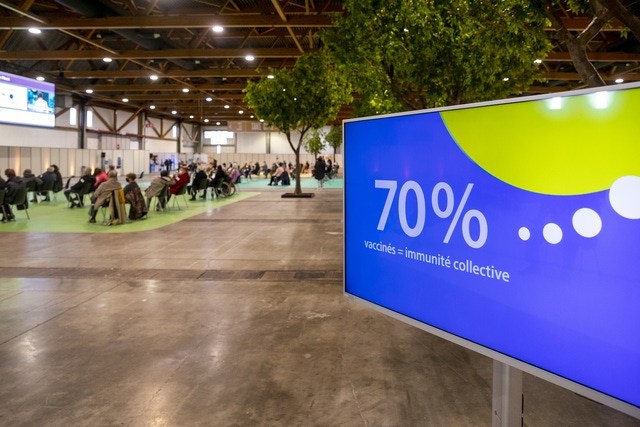While there is no "magic number" for herd immunity after which the entire population will be protected against the coronavirus, reaching a higher rate than the minimum of 70% is always better, health officials stated during a press conference on Tuesday.
Experts always said that, to achieve herd immunity, Belgium had to aim for a vaccination coverage of 70%, but vaccinologist Pierre Van Damme of the Vaccination Taskforce last week stated that the threshold should be raised to 85% to 90% to be safe.
"Let me start by saying that there is no magic number for the vaccination coverage, from when the pandemic will suddenly be resolved," virologist and interfederal Covid-19 spokesperson Steven Van Gucht said.
"Initially, 70% was set as the minimum vaccination coverage to be reached, and I think the word 'minimum' is very important here," he said.
In principle, there is no need to get pinned down on a particular figure, according to Van Gucht. "The principle is: the higher the vaccination coverage, the better and the healthier we will be able to put this pandemic behind us."
Related News
- Belgium needs to aim for 85% to 90% vaccination, experts say
- Vaccinating 70% of Belgium's population is 'not enough', experts warn
- Rebooking vaccination appointment to go on holiday possible after all
The vaccination rate should, however, be as high as possible, and "preferably higher than 70%," he said, referring to new more infectious virus variants which have emerged in the meantime.
"The vaccination rate, or the herd immunity, also depends on the infectiousness of the virus," Van Gucht stressed. "The more infectious the virus is, the higher the herd immunity should be."
The herd immunity for measles, for example, which is a particularly contagious virus, should at least be at 95% of the population, according to him. "For the coronavirus, it is expected to be somewhere between 70% and 95%."
Additionally, some of the new variants are more divergent from the initial strain, which is the one in the vaccine.
"This means that the vaccine does not work as well against those variants, and that you benefit from as high a vaccination coverage as possible," Van Gucht said.
According to him, a coverage of 80% or 90% is "certainly not unrealistic" at this point. "If we look at the 65+ age group, we are already well over 90%, which is a very good result."
As far as the high-risk groups under 65 years old are concerned, almost 80% have received at least their first dose.
"For the rest of the population, the vaccination campaign has only really come into its own," said Van Gucht. "But in principle, the more people are vaccinated, the lower the risks in the coming months will be, especially in the coming autumn and winter, and the more we will be able to move towards a complete normalisation of society."
The more people are vaccinated, the less the virus can continue to circulate, the less chance there is of new outbreaks and the less chance there is of new variants emerging, according to him.
"New variants will continue to emerge, but the pace will slow down, and that is important," Van Gucht said. "That means that there is also a smaller chance that there will be variants that can break through vaccine immunity, for example."

